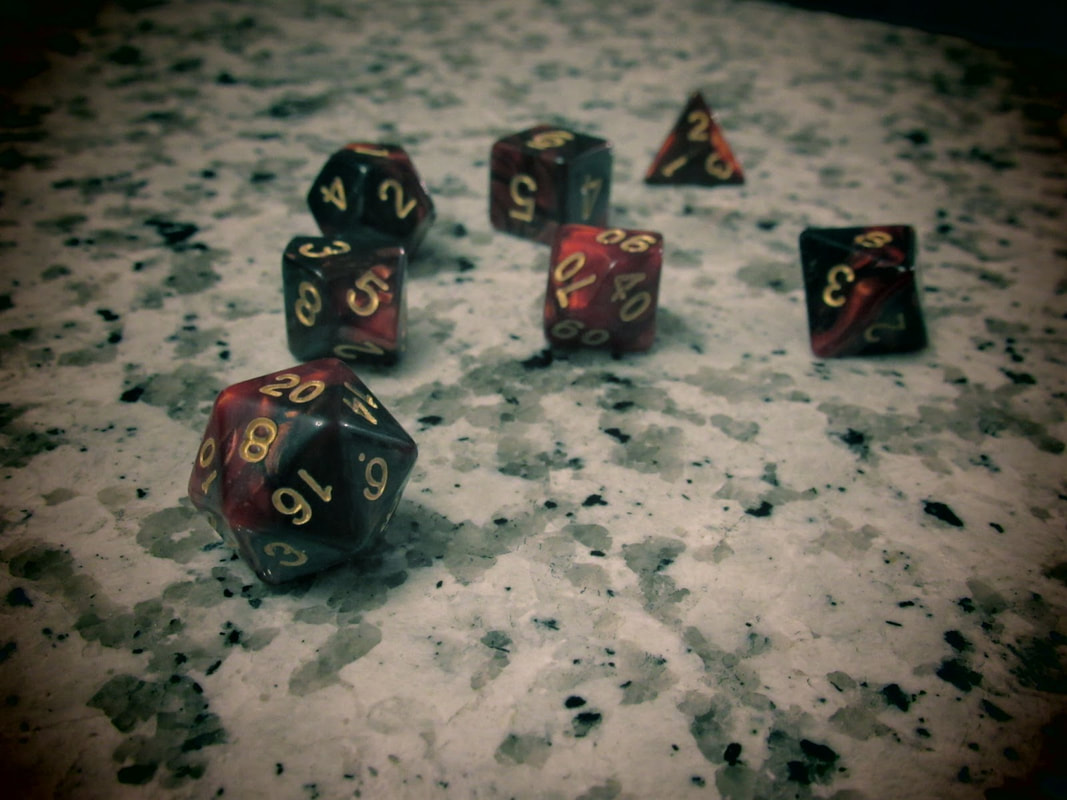 The most important element in roleplaying is communication. Sometimes players will assume that their DM has understood what they are attempting, only to find out a scene later that their idea went completely over the DM’s head. The following listicle will help your DM understand you better and reduce any problems that originate from a lack of proper communication. 1) Goal This sounds trivial but most players will almost always assume the goal and not mention it. “I want to climb the wall” sounds like a goal but it isn't, because it doesn't let the DM know why you are trying to climb the wall. “I want to get to the top of the wall so I have a better position from which to shoot my bow” says clearly what your intention is. Without a clear goal, the DM may misunderstand and end up narrating a result that you didn't expect. Sometimes this issue can be solved immediately, but in other cases this won't become apparent until after the encounter. At which point arguments ensue: “During the fight I climbed the trees, but it never gave me any protective cover!” “Well, you just said that you wanted to climb the trees. You never told me why.” 2) Means How you are going to do what you are attempting. This is the big one because here you can be creative and ingenious. Your DM might even reward you with some in-game bonus depending on how you do it. Climbing a wall barehanded isn’t the same as using a grappling hook. A single goal usually has many ways of achieving it, so don’t always go for the trivial option. Imagine the surrounding environment, what things are around that can be used. The DM will usually not be exhaustive in his description which leaves room for imagination. This is also a good time to look through your inventory. DMs will usually pick the most obvious means, if one is not specified, and assume you are using no equipment. This can result in losing potential positive modifiers to your skill test or, even worse, getting negative modifiers! 3) Skill Do not leave the skill test choice to your DM. Some games have an exhaustive list of skills and your DM won’t have all your skills memorized. He does not know what you are good at and what you are terrible at. If you want to use your “Lie” skill but the DM asks you to do a “Charm” test, go ahead and tell your DM: “I would like to use my Lie skill.” Some DMs might not like this style so be sure to talk it over with them. Try to be reasonable and not ask for a skill check with an unrelated skill, like using your strength skill to sing. Though sometimes using a completely ridiculous skill can have hilarious results. Your DM may and should encourage you to explain how your skill is being used. 4) Assistance Unless your character suffers from delusions of heroism, you might want to ask other characters for help. NPCs are not just side quest givers, some have skills that can and should be used to your benefit. Most DMs will fill the world with helpful NPCs just waiting to be used. Town guards can help you fight off those outlaws mugging your party in the alley. Some recurring NPCs, such as a previous quest giver, can become allies. They can provide information or resources for your current adventure. Even your enemies can be of aid if you understand their objectives and motivations. After all, if the dragon attacking your town is after gold why not lead him to your rival’s larger and richer city. 5) Personality Skill tests are the best moment to show how your character behaves. A barbarian and a duelist might both fight with swords but how they fight differs completely. Think about how this skill test relates to your character. A fear of heights might make a wall climb more interesting, or perhaps an old grudge fills you with fury as you strike your enemy. Personality can also be used to show intent. A scholar holding his book to his chest with sweat falling down his brow while hiding behind a shelf is cleverly not going to try to ambush the beholder. Don't forget that you are playing to have fun and “I jump backwards as I flail my sword around while yelling ‘I hate skeletons!’’ is always more entertaining for everyone at the table than: “I attack with my sword.” With all this in mind, we can change: “I wanna climb the castle wall” to: “I want to get to the top of the castle wall so I can sneak in. I’m going to look for the best catapult expert in our unit and I want to convince him to launch me. I want to use my Charm skill and with a wink and a convincing smile I say: ‘If you get me on top of that wall, I will end the war and you can be on your way home before dawn.’” Rodrigo Peralta is a roleplayer and a DM that likes to playtest many different rpgs. He enjoys both highly detailed complex systems and barebone casual games. He participates in local roleplaying events as both DM and player. Picture provided by author. Leave a Reply. |
All blog materials created and developed by the staff here at High Level Games Archives
April 2023
Categories
All
|
Proudly powered by Weebly



 RSS Feed
RSS Feed